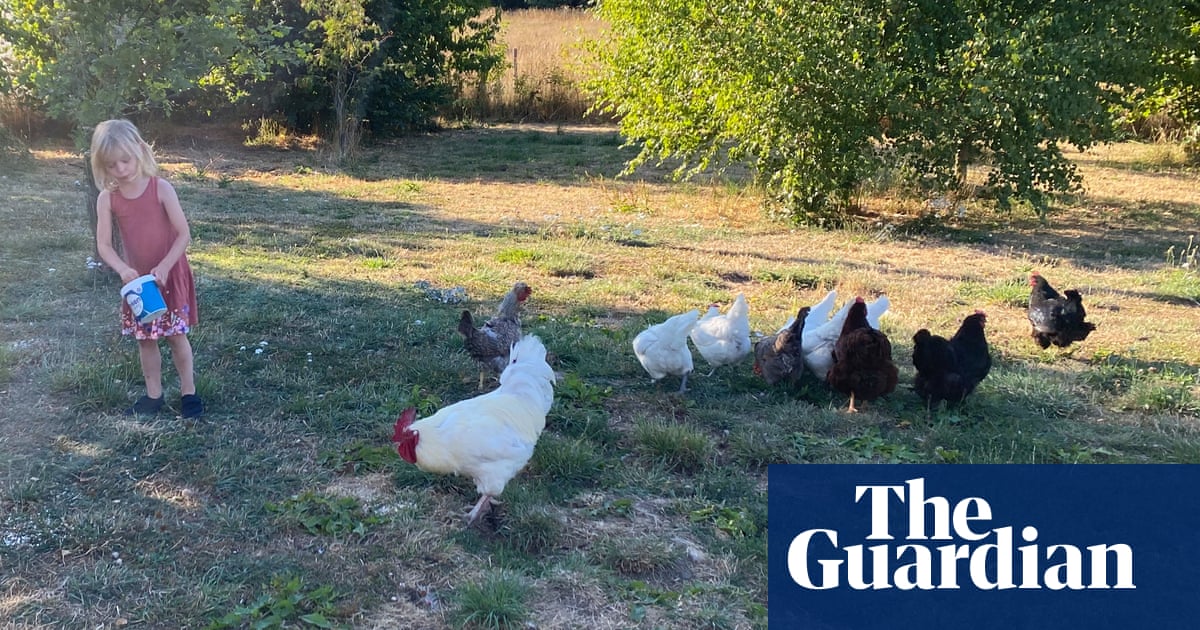
Erwin Schrödinger never actually owned a cat, but he might have known a thing or two about how it feels to have one go missing: a lost cat is simultaneously dead and alive, stuck in limbo.
Thousands of pet owners across the UK have experienced this thought experiment. According to research from Admiral Pet Insurance, more than 250,000 cats are currently unaccounted for and a moggy goes missing every three seconds. Add to that the packs of dogs, flocks of birds and colonies of rabbits that go missing each year and there are likely to be more than a million AWOL animals across Britain at any one time.
Many of these, of course, are found within hours – tucking into next door’s tin of tuna with their tail between their legs, or playing an extended game of hide-and-seek in the park. But others are lost for months. A search often begins with a print-out pasted on to a postbox. Few things pull on the heartstrings more than a missing-pet poster – a laminated lament for a lost animal.
Still, most owners never give up. While posters might fade over time, online posts keep the search alive. Scour through any local Facebook group and you’ll find dozens of pictures of lost creatures. Some owners turn to a more dedicated service, like Animal Search UK, for help. Britain’s largest database of missing pets, it’s been reuniting owners with their pets since 1999 and took over the RSPCA’s lost-and-found service last year. Owners may pre-register their pet in case they ever lose it, meaning that if it does go missing you can start the search immediately.
Any time a missing pet is registered, the database uses keywords to flag potential matches, and owners receive a notification. If you’re able to pay, the charity also has an advertising service, ranging from localised social media ads to national press campaigns to a crack team of missing pet experts, equipped with tools including thermal imaging cameras and microchip scanners.
“First and foremost we’re a support line for people,” says Saqqara Richards, a communications officer at Animal Search UK. “We’re open 24 hours a day and get an awful lot of people calling us in fits of tears and inconsolable. We’re here as the first point of contact, to try to motivate people to get knocking on doors, but also listen to them and be a shoulder to cry on.”
Losing your pet is truly petrifying. And the impact can be huge. “Ambiguous loss is by far one of the most stressful and confusing type of loss that anybody can experience,” says Dawn Murray, a leading pet-bereavement counsellor. “That state of being frozen in time, not knowing what became of the pet… Ambiguity does not sit well with humans.”
Part of the healing process often involves joining the pet-hunting community. Animal Search UK, for example, has 86,000 pet watchers, many of whom have themselves lost pets in the past. “They’re essentially volunteers who either actively go out and search for pets or just make a note and keep an eye out,” Richards explains. For Murray, this is a form of moving on. “We begin to find meaning in our loss, channelling it into something a lot more positive.”
Sometimes, there is good news: pets are found months, years or even decades after they first went missing. This can, at first, cause complications. Do I still want a pet? Will it get on with my new one? Can I afford it? “You might be thinking that my life’s changed,” Murray says. “Or it may not seem like the same pet has come home.”
For the most part, though, finding a missing pet is pure joy. Unlike a found missing person, most owners never know what their pets got up to – they are left to guess, based on new appetites, physical changes and character traits. For those pets yet to come home, there might still be a happy tale. Thousands of animals are living out secret adventures right now – lost, but having found a new life.
‘Smudge remembered his name after seven years’
Aimee and Smudge the cat
Smudge went missing when I was eight months pregnant in 2015. He was chipped and I put a lost and found post on Facebook and checked that regularly to see if anything came up, but nothing ever did. Last June, a man called Martyn Sams, who I can’t thank enough, posted on Facebook to ask if anyone owned a cat he’d found – it looked really skinny and he said he’d take it to the vets to see if it had been chipped. I said it looked like my cat and I sent him my details. It was indeed Smudge.
I couldn’t believe it. I remember going to the vets to pick him up. The vets said he hadn’t yet let anyone stroke him, but when I said his name he looked up and ran over to me. So strange. How does a cat remember its owner after seven years of being missing? It might have been in my head, but it was like he just knew – it was so humbling.
It’s still hard to this day to think that it was seven years – I have no idea where he’d been. He’s a lot healthier now, but he spent the first two months eating a lot. He still randomly goes out and comes back, which is a little disconcerting – but he always returns, every night. It made me realise how important it is to get your cats and dogs microchipped. Anyone could have claimed him. It was only because my name and his name were on there that I was able to get him back.
‘The snake disappeared through this tiny hole’
Jasmine and Mikey the snake
Mikey was quite an old boy. He originally belonged to my wife Jo’s brother, and had just turned 17, which is pretty impressive for a corn snake. We adopted him during Covid while living in Fallowfield, Manchester, as Jo’s brother’s parents weren’t crazy about him. We did a lot of handling with him, got him out and gave him regular supervised explorations.
On the night he went missing, we were actually bathing him for constipation. A snake is basically a tube, the chute goes from one end to the other, so sometimes you have to give them a bath to ease everything out. He usually really enjoyed it, too, but that day either the water was too cold or too warm or he was just grumpy, because he immediately went nope, I’m not having this, and wrapped himself around the bathroom pipes.
Then he started moving downwards, which at first we thought was good as it would be easier for us to gently prise him off. But he found a tiny nook, the size of a 5p piece, leading to the basement. By that time he was too far gone to pull him out, and it was 11pm at night. We figured he’d come back out. He didn’t, so we went into the basement with a torch and a pillowcase, trying to charm him out with heating pads and mice.
After a few days, we headed to an exotic pet store for advice. They told us not to feel too bad about it, that he’s probably quite happy and will have everything he needs: heat, leaking water and mice. It was a weight off my shoulders.
At the same time, we were signing the lease for a new place. We were told he was unlikely to come back up and would probably die a natural death down there. He wasn’t dangerous, so we kept going with the move and didn’t tell the people moving in as we didn’t exactly want to make them terrified every time they walked around the house.
Six months later, by total chance, I found myself back in Fallowfield, at the pub. I was scrolling through the Manchester students’ group on my phone and noticed someone had posted 10 minutes prior asking if anyone knew the owners of a snake he’d found. I bolted out the door, realising it might be my one chance to get him. It turns out Mikey had appeared in the house, but the people living there were a bit bemused and put him on this grassy bit outside, instead of calling the RSPCA. Then this person found him, and was just hanging out watching him, slightly fascinated, slightly nervous.
Mikey never threatened me and was always docile. But understandably, after fending for himself for six months, he was cranky. Whenever we went near him, he moved into a threat pose. We eventually managed to pop him into a pillowcase and got a lift home. Luckily, we still had his tank, just in case, so I scrubbed that out and bought some fresh food, bedding and a heat lamp. He was hissing for a few months but now is back to normal, very healthy and friendly again. He’s been out for supervised explorations since and has even had another bath in a washing-up tub. But we’ve learned our lesson; we’re not letting him anywhere near a bathroom again.
‘We couldn’t believe our nightmare had ended’
Andy and Murphy the husky
Murphy was always an inquisitive, curious and loving husky. In December 2014, while out for a walk in the cemetery near where we live, he slipped his collar and ran off chasing a squirrel. Being a husky, he has very little recall. We couldn’t find him, so when we got home we posted on Facebook in case anyone had seen him. We were in luck; we got a call around 11pm from someone who said they had found him and that we should meet in a carpark at 1am.
When we turned up, though, they didn’t show. We still had their number, so we rang them; their response totally shocked us. “Our children have grown fond of him and don’t want to give him back,” they told us. We couldn’t believe it: we were so angry that they could just take him and there was nothing we could do to track him down.
We started a social media campaign to try to find him. Our plight was even raised in Prime Minister’s Questions when our local MP brought up the issue of dog theft. We followed up every possible sighting of Murphy, going all over the country, from Sheffield to the Scottish Highlands. The animal-loving community took our cause to heart and shared our posts far and wide. Three months later, we got a call from the RSPCA Hospital in Salford, saying they had a husky that had been surrendered and believed it to be Murphy. It was, and we were reunited the next day. It was a very emotional drive from Bradford to Manchester, we didn’t want to get excited and build our hopes up, as we had had so many hoax calls and sightings.
We were scared to believe it was really him and didn’t quite believe it was happening. When we were waiting in the room for the nurses to bring Murphy in, the 10 minutes felt like a lifetime. The moment they opened the door and he came waltzing in, our emotions took over and we were both in tears; tears of joy and relief it was Murphy and that he was absolutely fine, as our biggest fear was that the people might have done something more sinister to him.
Murphy being the curious character he is, was more interested in sniffing out the treatment room than coming to see us. The drive home was very emotional, we couldn’t believe our nightmare had ended. We had to make lots of calls to our friends and family to let them know the amazing news. We had a welcome-home party waiting for us. Our other dog, Paddy, had really missed his brother and was overwhelmed to see him walking up the drive.
The next few days and weeks Murphy was very clingy and wouldn’t leave our sides. If only he could talk and tell us what he had been through. Our team, brought together by Murphy going missing, pledged to continue their efforts – and Murphy’s Army was born. With more than 40,000 followers on Facebook, we have helped reunite hundreds of missing pets with their owners and raised much-needed awareness of the increase in pet theft. We’ve also branched out into amplifying the Murphy’s Army Purple Poppy Campaign, used to commemorate animals that have served in the military.
Since 2016, we have raised more than £140,000 for various animal-related charities that support service animals. Two Charity Trustees in Murphy’s Army have sons in the armed forces, which is how the idea started to raise funds for animals who have served and still serve us now.
Murphy has always been a diva and loves to have his photograph taken, which is just as well as every year he marches on the Armistice Day parade to lay a purple poppy wreath at Bingley Cenotaph at the Remembrance Service. Nine years on, Murphy still knows he is the centre of attention, and loves the fuss and cuddles from people who recognise him.
‘I knew it was him. But he was now twice the size’
Kate and Oscar the cat
I first got Oscar as a rescue kitten – he was covered in fleas and pretty mangy. He was always like a dog-cat, if that makes sense, very happy to go on walks and really sociable. I started living on a boat on the Thames and wasn’t sure how he’d fare as it’s constantly moving, but he got used to it. I’d never left him alone before, but in the summer of 2017 I headed to a festival and bought an automatic feeder to tide him over for a couple of nights.
When I got home, he was gone. I saw that the porthole window had been pawed open and there was a mixture of fur, blood and glass, so I thought the worst and was worried he’d injured himself or drowned in the river. I was distraught and felt really guilty, especially as I’d never left him before. I put up posters and went back to places we had moored but couldn’t find him.
Half a year or so went by. You never forget, but you try your best to move on. Fast-forward to February, earlier this year, and I got the most surreal call saying my pet had been found. Just a few months prior, I’d had a cat called Ralph that had sadly been run over. My mind went first to him – I told the caller he’d died. “No, it’s Oscar,” they said, describing his blotchy black-and-white features. I couldn’t believe it. Due to the shock, I couldn’t exactly remember how long it had been. It turns out it had been six years and two months.
By this point, I’d taken over a pub called the Rising Sun near Henley on Thames. I’m the head chef, so I had to anxiously finish lunch service before waiting to pick him up. Before I went to the vet, I drove to Pets at Home and spent a fortune on all sorts of cat paraphernalia – including a doughnut bed and some posh cat food – since I felt so bad and wanted him to feel at home.
At the vets he was cowering in the corner of a cage, but I knew it was him. He was twice the size, though. He’s quite a fat cat, now. I bundled him into the pet carrier and took him home, and he came out of the box and went straight under the sofa like cats do. I went about my business on my laptop, and after half an hour or so he ventured towards the edge of the sofa and started sniffing.
It was so funny, it was as if the penny had dropped. He sniffed my leg and realised: it’s you! He made those “brooping” noises and jumped on my lap and then was all over me. It made me cry. He comes on walks with the dogs now, and I’m trying to get him to lose some weight. He’s slowly getting used to living in a pub, rather than a house or a boat, as there are lots of people and dogs, but he’s getting braver and braver every day.
‘Jemima can move like the wind’
Belinda and Beatrice with Jemima the tortoise
We “inherited” Jemima, who is a large Greek tortoise, along with her companion, Georgina, when my father-in-law passed away in 2016. Caring for a tortoise sounds like it might be simple enough, but unlike Georgina, Jemima can move like the wind.
I remember watching her scale the vertical wooden planking during lockdown, earning her the title “Jemima the escape artist”. She was renowned for it. I urged my (then) husband to fix the enclosure, as I feared Jemima would in fact escape one day, but he never got round to it.
Two years ago, I arrived home to find her missing. My children were distraught, especially Beatrice, my youngest. We scoured the farmer’s fields at the back of the house, walking the length of the terrain with methodical precision from the house to the main road and back again.
I put out a Facebook post hoping someone would spot her and get in touch. Several sightings came to nothing. I assumed she’d been found and plonked in a garden, claimed by another family, or disappeared into the countryside. But I never gave up on her. Tortoises have been known to disappear for years and finally return home. One day in May, a woman named Bev sent me a private message. She remembered my original post and wondered if a tortoise she’d found was mine. The tortoise was then shipped up to Morpeth to the Worrall Bank Veterinary Hospital for boarding, as Bev is a veterinary nurse there. After swapping pictures it was confirmed: the tortoise was Jemima! Bev also had a tortoise and we struck up a lovely rapport.
A slight concern though had set in at the vets – she wasn’t eating or drinking. It turned out Jemima was egg bound. After a shot of oxytocin she passed seven eggs. We excitedly drove up to Morpeth and picked her up (along with her eggs) from the lovely team at the local vets who had been caring for her. My daughter was overjoyed. Not only had she found our beloved tortoise, but there were eggs, too.
We took Jemima home and reunited her with Georgina in a more robust and secure pen. She was a bit cheesed off to begin with – she was used to roaming the fields of Northumberland, after all. But now she has settled in beautifully, gorging herself on bananas and strawberries, which is a luxury after existing on dock leaves and goodness knows what else in the last two years. We have incubated the eggs, and are hoping there may soon be another miracle.
We later found out that a local man called Andrew had been looking after Jemima, coming across her in August 2021 while on a dog walk. Stopping to have a chat with a combine harvester driver, he had noticed two of his dogs sniffing at what appeared to be a stone. Closer inspection revealed it was moving. It was actually a tortoise; it narrowly escaped being decimated by the combine harvester by a couple of feet. After nearly heading to an elderly tortoise retreat, Andrew’s sons had kept Jemima and looked after her, though she often escaped into neighbouring gardens and ended up hibernating.
She had disappeared for the entirety of autumn, before being found again in the compost heap having just laid two eggs. Then, she broke free again, before being found in May 2023 by a woman who almost ran her over, another lucky escape, before taking her to the vets. The rest, as they say, is history.












